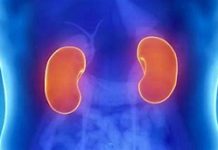During sleep the brain reorganises the way negative memories are stored, making them harder to reverse, evidence indicates.
“Never go to bed on an argument,” so the saying goes. And according to a new study, we should take note of this age-old advice. Researchers have found that going to sleep while still holding on to negative memories can make it harder to suppress them.
The study, published in the journal Nature Communications, suggests that during sleep, the brain reorganises the way negative memories are stored, making these associations harder to suppress in the future.
“In our opinion, yes, there is certain merit in this age-old advice,” said Yunzhe Liu, who led the research at Beijing Normal University and is now based at University College London. “We would suggest to first resolve argument before going to bed; don’t sleep on your anger.”
The findings could also have implications for the treatment of conditions such as post-traumatic stress disorder (PTSD), the authors said.
The study, conducted over two days, used a psychological technique known as the “think/no-think” task to test how successfully 73 male students suppressed memories.
First, the men learnt to associate pairs of neutral faces and unsettling images, such as injured people, crying children or corpses. Next, they were shown the faces again and told to either actively think of the associated picture or to consciously avoid thinking of it. When this session was conducted just 30 minutes after the initial learning, the participants were 9% less likely to remember the images that they had avoided thinking about compared to control image pairs – the suppression had been effective.
However, when the suppression session was carried out 24 hours after the initial learning, after a good night’s sleep, they were only 3% less likely to recall the image.
The team found that 30 minutes after the learning task, neural circuits involved in memory suppression were more active in the hippocampus – the brain region linked to learning and memory – while 24 hours after, this activity became widely distributed in the cortex, making bad memories harder to repress.
The authors explain:
The researchers found that when presented with the faces 24 hours after the learning task – after having had a good night’s sleep in between – subjects were more likely to remember the aversive images than when they were presented with the faces 30 minutes after the learning task.
Brain scans offered a clue to why memories may be more difficult to unpick once they have been consolidated by sleep. Functional MRI scans of the participants revealed that newly acquired memories were represented by brain activity tightly centred on the hippocampus, the brain’s memory centre, but the overnight memories had become more distributed across the cortex.
The authors caution that the findings were in healthy participants and are not immediately applicable to conditions like PTSD – and expecting people who have undergone a traumatic experience to start working on suppressing the memory on the same day is “probably not realistic advice”, Liu said. However the research could help design evidence-based treatments for PTSD in the future, he said.
“We think the “re-consolidation” technique may be useful, so that we first evoke this piece of memory, and then try to suppress that,” Liu said, referring to a treatment strategy in which old information is called to mind with the aim of modifying the memory either with drugs or through behavioural interventions.
All in all, Liu and colleagues believe there is some substance to the theory that one should not go to bed on an argument.
Talking to The Guardian, the researchers say: “We would suggest to first resolve [an] argument before going to bed; don’t sleep on your anger.”










